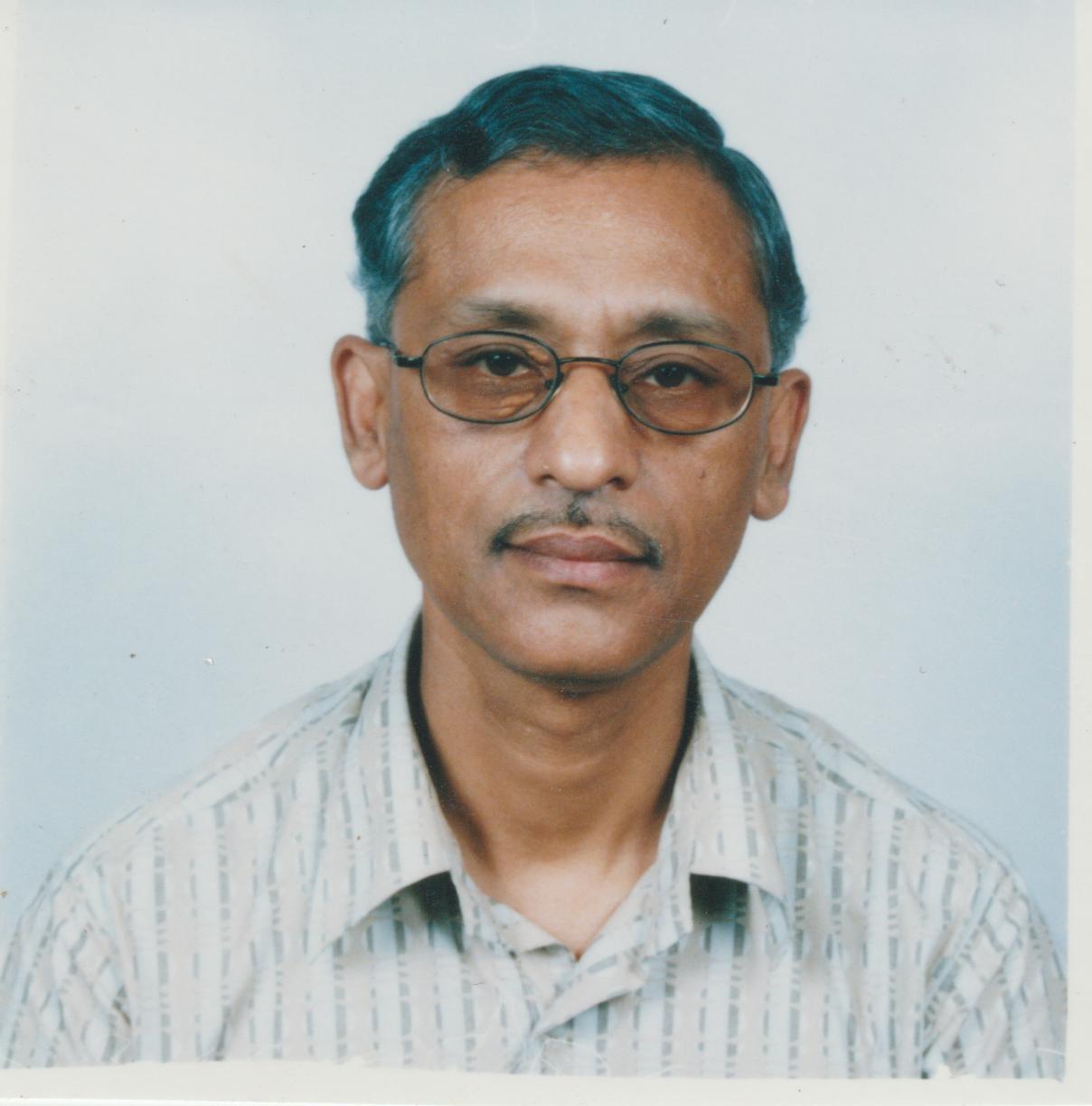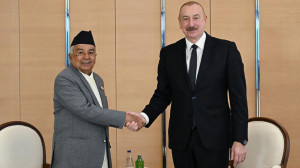Columns
The reasons behind the persistence of groups like Netra Bikram Chand’s
The consensus is that the big fish among the corrupt persons should be called to account mercilessly.
P Kharel
Given the decade-long Maoist insurgency that created havoc across the country, the road to recovery and normalcy is strewn with suspicion and uncertainty. It has been nearly three months since Home Minister Ram Bahadur Thapa warned that if the banned Communist Party of Nepal, led by Netra Bikram Chand, did not lay down its arms and join the negotiating table, the government would go ahead with stern action. The deadline has come and gone, but the Chand-led outfit’s activities continue.
The decade-long insurgency is being buried in a hurry, but those with a keen sense of all aspects of history will not abandon excavating it piece by piece and step by step until its horrors are recalled, chronicled and reassessed for authentic reading.
Upholding what Pushpa Kamal Dahal abandoned to join the privileges of the political mainstream, Chand’s group created a stir in the past four months, inspiring strong responses—for or against. It is intriguing that he rejected the prospects of an assured political career, comfort and safety, as so tellingly underscored by the success of those returning to the national political mainstream.
Cause of commitment
During spring, a series of blasts and other incidents underscored basically a practice-run for all-out action, details and the schedule of which are being kept in deep freeze 'for the time being'. As the group gains ground, amid a growing number of enthusiastic youths interested in joining the organisation, screening them is becoming a tough task. Biplab, as Chand is more popularly known as, aims at developing a more sophisticated military capability and arsenal. Meanwhile, thoughts thick with uncertainty and speculation grip the political air, unleashing rumours to the already overstretched grapevine.
Why does Biplab turn down the prospect of easy access to power and pelf—as Home Minister Ram Bahadur Thapa elected to do? Thapa had deserted Pushpa Kamal Dahal, only to return to the former boss’ embrace a year before the parliamentary polls and was rewarded as the home minister in what is dubbed as the most powerful cabinet since the 1951 dawn of democracy.
In the run-up to the expected changes in geopolitics, China has made inroads into Nepal as another influence initiator of the proactive variety. The latest opening was gifted by the crippling economic blockade New Delhi orchestrated. The main opposition, the Nepali Congress, remained silent and paid the price in the 2018 elections. Oli was elevated as an election-winning leader whereas Biplab tried emerging as an alternative to mitigate the existing anomalies and deep-seated frustrations.
The killing of Biplab’s Sarlahi district in-charge Kumar Paudel once again showed the risk of fake encounters generating some support and sympathy for the banned group. Kumar Paudel’s killing has drawn as much attention as did the home minister’s giving him what some of his parliamentary peers called branding, instead of the tag of criminal that former Maoists in the Nepal Communist Party wanted to pin on him.
With Thapa as the home minister, who needs to take the gauntlet seriously? Janardan Sharma, a senior member in the Nepal Communist Party and former home minister, made a compelling presentation in Parliament the other day stressing that the state needs to refrain from conducting fake encounters. He was clearly not convinced about the government version of how Paudel was killed.
The more the past is recalled, the jumpier PK Dahal gets and frantically glorifies the 'grand success of the people’s war' that claimed 17,000 lives and led to the present mess. A comparison of Chand’s tactics with those employed so aggressively and persistently by the Maoists during the decade-long insurgency is natural.
There is speculation among China experts that the spate of activity in connection with the Biplab group in Nepal figured prominently during the discussions between Chinese President Xi Jinping and Indian Prime Minister Narendra Modi when the two met recently.
Desperate people make desperate decisions—for good or for bad. Taking Chand lightly would be a massive miscalculation with unpredictable repercussions. Personality clashes between the now-united Maoists in the ruling Nepal Communist Party and the banned Biplab group are among the causes aggravating the on-going conflict. Chand sends his boys and girls to remote corners for ideological orientation and to strengthen their commitment. Moreover, random arrests of suspected Chand affiliates have boomeranged on the government, reinforcing whatever grievances the recruits might have against the state. In a highly questionable tactic, those meeting without arms are arrested in a bid to end any sympathy or potential for support to the group. Only those implicated in incidents should be booked, otherwise, the government may pay a heavy price in the long run.
Today’s situation is the result of having taken the group lightly, dismissed as they were as a nuisance whose network was confined to a few locations and whose presence was a way of bargaining their way into public acceptance. The nausea of fear and frustration generated by Biplab’s group compels people to recall the long violent dance of death and destruction by the Maoists led by Dahal, who pitched his camp in Indian cities for almost the entire time, eight and a half years of them in Noida on the outskirts of Delhi.
Emerging agenda
The Communist Party of Nepal was formed in November 2014 after Netra Bikram Chand parted company with the Mohan Baidya-led Communist Party of Nepal (Revolutionary). Chand was the second-in-command of the Revolutionary group that was constituted in 2012 after Baidya split from the Dahal-led Maoists. Biplab in December roundly rejected the Oli government’s call for talks. He opposes the 2015 Constitution and calls for a 'new people’s revolt' in order to set up a 'people’s government' to replace the existing parliamentary democracy. It has reportedly formed 'parallel governments' in several areas.
In February, Chand’s outfit detonated improvised explosive devices near the Arun III Hydropower Project construction site. A series of arson attacks targeted Ncell infrastructure at several sites, and a Provincial Assembly lawmaker in Bajhang district was detained for seven hours for questioning. In April, a pressure cooker bomb was detonated near the Indian Embassy’s temporary field office in Biratnagar, and the Arun III Hydropower Project office in Sankhuwasabha district was also targeted. Millions of students—from pre-primary to university level—were affected due to the closure order from the Communist Party of Nepal's student wing for at least eight days.
Biplab hopes to appeal to the deprived, those politically excluded and independent sections of society that see rampant corruption as the chief cause of the bad governance witnessed in the past three decades of multiparty democracy. In other words, the characters have changed, but the condemnable practices continue with gay abandon. Hectic behind-the-scenes negotiations are underway for new power equations targeted against the ruling combine.
What brings these groups together, including Biplab and the factions of various mainstream organisations, is their consensus that the big fish among the corrupt persons should be called to account mercilessly. Corruption control is a common area of agreement.
Kharel is a former editor of The Rising Nepal.




 20.22°C Kathmandu
20.22°C Kathmandu















